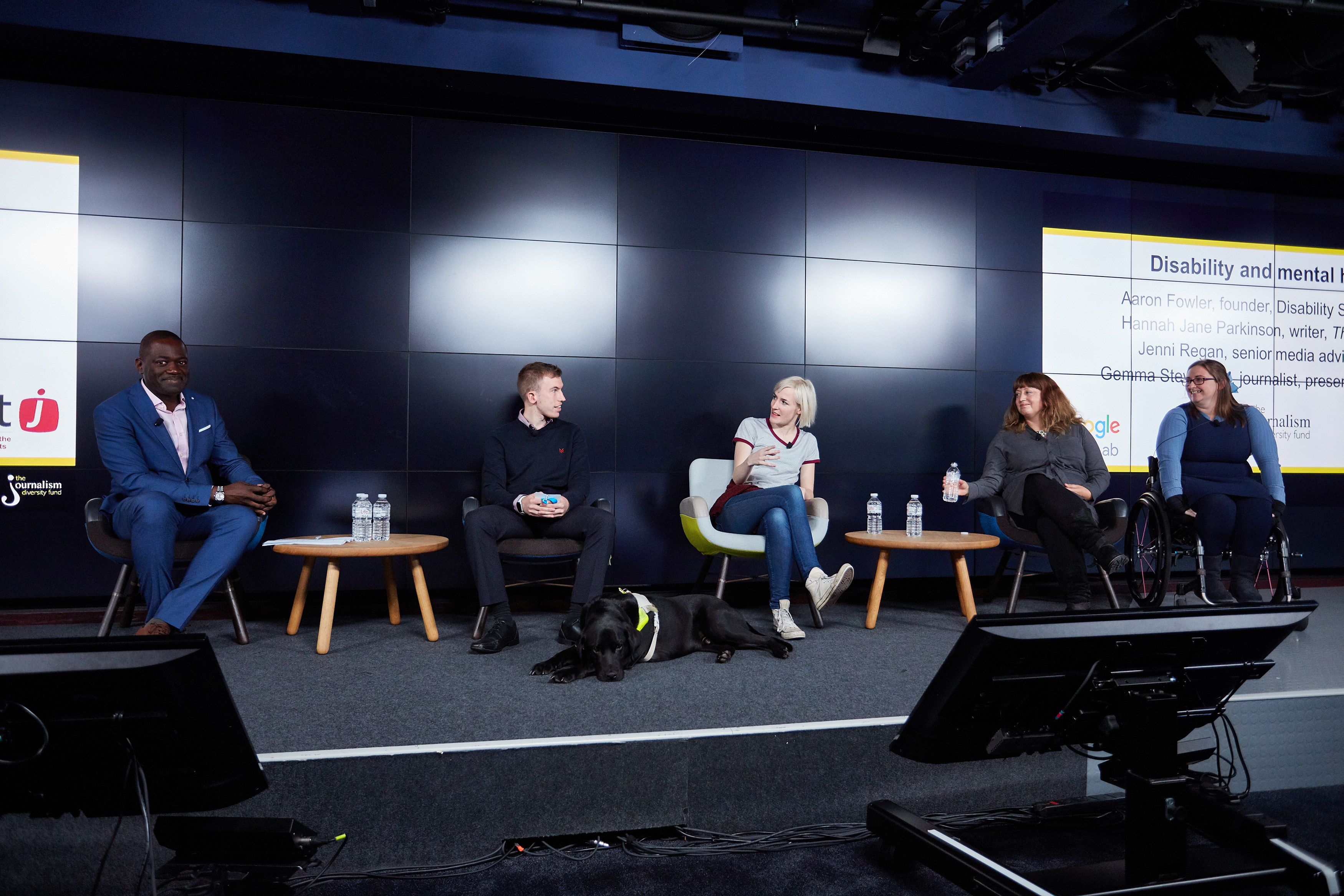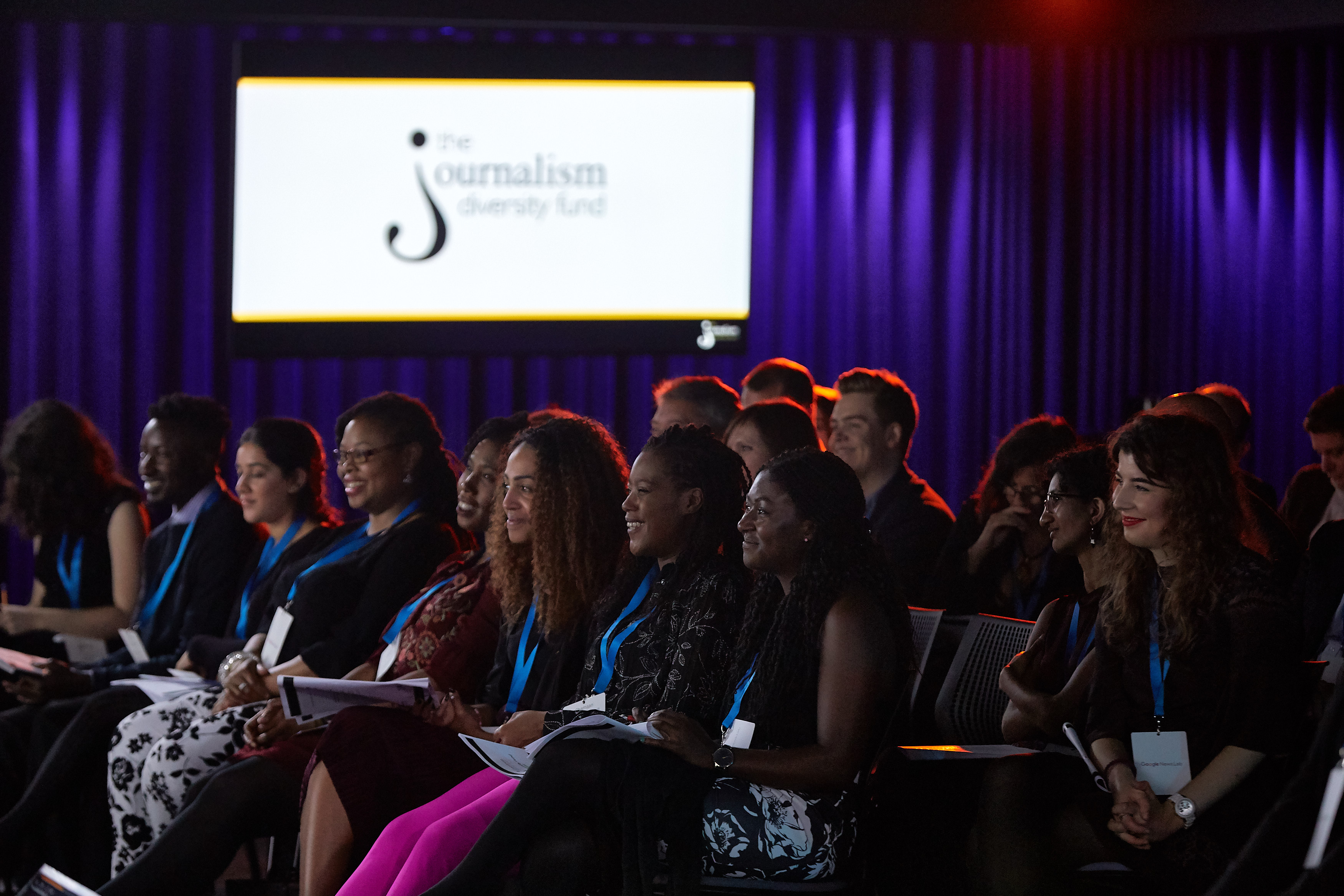The importance of speaking out highlighted at diversity in journalism seminar
Unconscious bias, mental health and disability were on the agenda at the inaugural diversity in journalism seminar from the National Council for the Training of Journalists, which took place yesterday, 18 October, at Google News Lab in London.
Unconscious bias, mental health and disability were on the agenda at the inaugural diversity in journalism seminar from the National Council for the Training of Journalists, which took place yesterday, 18 October, at Google News Lab in London.
The event invited journalists, students and industry professionals to listen to a host of panel discussions throughout the morning, which formed part of the annual Journalism Diversity Fund celebratory event.
 Jacqueline Simmons, executive editor at Bloomberg, took part in the first panel discussion of the day, which looked at attracting and retaining journalists from all walks of life. She said: “When you’re talking about diversity in the newsroom, it’s about how hiring managers think, which can be hard to change, but something many newsrooms are working towards.”
Jacqueline Simmons, executive editor at Bloomberg, took part in the first panel discussion of the day, which looked at attracting and retaining journalists from all walks of life. She said: “When you’re talking about diversity in the newsroom, it’s about how hiring managers think, which can be hard to change, but something many newsrooms are working towards.”
She added: “I think that when we don’t have role models at the top, when we don’t have people we can aspire to and there isn’t a place for us, we leave.”
The panel was chaired by NCTJ trustee Abu Bundu-Kamara, and also welcomed Elizabeth Pears, news editor at BuzzFeed, and Suchandrika Chakrabarti, editorial trainer, Trinity Mirror to speak alongside Jacqueline.
Elizabeth offered some advice to the aspiring journalists in the room: “Start thinking of yourself as a journalist. If you have a story to tell, believe in yourself and tell it.”
She also drew on her own experience: “You can’t underestimate the importance of NCTJ training, as you can’t rely on being a good writer alone”.
Suchandrika spoke about the importance of having confidence when speaking to editors and pitching stories: “It’s important to remember that we’re all the same deep down, we’re all human underneath.”
Jacqueline added: “Be curious, talk to everybody and don’t be shy. You need to have a thick skin in journalism, it’s important to embrace rejection and learn from it.”
 Mental health and disability was up next, with panellists highlighting the importance about being open and speaking up.
Mental health and disability was up next, with panellists highlighting the importance about being open and speaking up.
Jenni Regan, senior media advisor at Mind, said: “Mental health is still very much a hidden disability in the workplace. Things are getting better, but when it comes to workplaces people do still hide their problems”.
She added: “I left journalism thinking it was because of my mental health, but really it was because I needed a support system in place.”
Fellow panellist Hannah Jane Parkinson, writer at The Guardian, drew on her own experiences with bipolar disorder, and stressed the importance of being open about mental health in the workplace. She said: “If they don’t get support, people will leave”.
Visually impaired sports journalist, Aaron Fowler, said: “Don’t be afraid to ask people about their disability and what help they need.”
This was a point that was shared by Gemma Stevenson, freelance journalist with specialisms in para-sport and tennis, who told the audience that there’s nothing wrong with asking someone about their disability, provided you take on board what they say. She said: “If you treat disabled employees well, you will have loyalty for life.”
Jenni recommended having a Wellness Action Plan and shared some simple tips to help journalists reduce stress in the workplace: “Don’t be chained to your desk, go for a walk at lunch time, speak to the people around you.”

A session on surfacing and addressing unconscious bias followed, presented by Cassiano Mecchi, diversity and inclusion business partner at Google. He told the audience not to underestimate the power of subtle signs that can have huge influence over the way we think, with 99.9 per cent of the information we process every day being processed unconsciously.
How can we ensure that we minimise unconscious bias in recruitment? “Challenge unconscious bias by holding others accountable and making decisions collectively”, said Cassiano.
Speaking to Press Gazette, Joanne Butcher, chief executive of the NCTJ, said: There’s still a lot of work to be done but events like this raise its profile, puts it on to people’s agenda and it’s great that people are being so open about the importance of not just recruiting diversity talent but also retaining that talent and developing people’s careers, but also bringing prominence to mental health and disability as well.
“There are no easy solutions but there is a real will to tackle the issue.”

